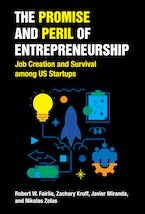Randall Akee is an Associate Professor at the University of California, Los Angeles in the Department of Public Policy and American Indian Studies. He is also Chair of the America Indian Studies Interdepartmental Program. He completed his Ph.D. at Harvard University in June 2006. Prior to his doctoral studies, Dr. Akee earned a Master’s degree in International and Development Economics at Yale University. He also spent several years working for the State of Hawaii Office of Hawaiian Affairs Economic Development Division.
Dr. Akee is a faculty research fellow at the National Bureau of Economic Research (NBER) in Labor Studies and the Children’s Groups. He is also a research fellow at the Harvard Project on American Indian Economic Development and at the Institute for the Study of Labor (IZA), a faculty affiliate at the UCLA California Center for Population Research (CCPR) at UCLA and a faculty affiliate at UC Berkelely Center for Effective Global Action (CEGA). His main research interests are Labor Economics, Economic Development and Migration.
Previous research has focused on the determinants of migration and human trafficking, the effect of changes in household income on educational attainment, the effect of political institutions on economic development and the role of property institutions on investment decisions. Current research focuses on income inequality and immobility by race and ethnicity in the US. Dr. Akee has worked on several American Indian reservations, Canadian First Nations, and Pacific Island nations in addition to working in various Native Hawaiian communities.
From August 2006 until August 2009 he was a Research Associate at IZA, where he also served as Deputy Program Director for Employment and Development. Prior to UCLA (2009-2012), he was an Assistant Professor at Tufts University and spent AY 2011-2012 at the Center for Labor Economics at University of California, Berkeley.
In June 2013 he was named to the U.S. Census Bureau’s National Advisory Committee on Racial, Ethnic and Other Populations.
Google Scholar Citations
Published and Forthcoming Papers:
“Estimating Institutionalization and Homelessness for Status First Nations in Canada: A Method and Implications,” forthcoming in International Indigenous Policy Journal. (with Donna Feir)
“Socioeconomic Outcomes for Indigenous Students attending a High Performing School” forthcoming at Journal of American Indian Education.
“How Does Household Income Affect Child Personality Traits and Behaviors?” (with E. Simeonova, J. Costello, and B. Copeland) American Economic Review, 108(3), 775-827.
“The Role of Race, Ethnicity and Tribal Enrollment on Asset Accumulation: An Examination of American Indian Tribal Nations”. (with Sue K. Stockly, William Darity Jr, Darrick Hamilton, and Paul Ong), forthcoming in Ethnic and Racial Studies.
“Critical Junctures and Economic Development — Evidence from the Adoption of Constitutions Among American Indian Nations.” (with Miriam Jorgensen and Uwe Sunde), Journal of Comparative Economics, 2015, Volume 43, pp. 844-861.
“The Indian Gaming Regulatory Act and Its Effects on American Indian Economic Development” (with Katherine Spilde and Jonathan Taylor) Journal of Economic Perspectives, Summer 2015, Volume 29, No. 3, pp. 185-208.
Press: American Economics Association
“Social and Economic Changes on American Indian Reservations in California: an Examination of Twenty Years of Tribal Government Gaming” (with Katherine Spilde and Jonathan Taylor) UNLV Gaming Research & Review Journal, 2014, Volume 18, No. 2.
“Investigating the Effects of Furloughing Public School Teachers on Juvenile Crime in Hawaii” (with T. Halliday and S. Kwak), Economics of Education Review, Volume 42, 2014, pp. 1-11.
Press: KITV News, Hawaii News Now, Honolulu Star Advertiser, West Hawaii Today
“Property Institutions and Business Investment on American Indian Reservations” (with M. Jorgensen), Regional Science and Urban Economics, Volume 46, 2014, pp. 116-125.
“Transnational Tracking, Law Enforcement and Victim Protection: A Middleman Tracker’s Perspective” (with A. Basu, A. Bedi and N. Chau), Journal of Law and Economics, May 2014, v. 57, pp. 349-386.
“Young Adult Obesity and Household Income: Effects of Unconditional Cash Transfers.” (with Emilia Simeonova, J. Costello, W. Copeland, and A. Angold), American Economics Journal: Applied Economics, 2013, 5(2):1-28.
Press: New York Times
Blog Posts: Daily Kos, The Economist, The Washington Post
“The Persistence of Self-Employment Across Borders: New Evidence on Legal Immigrants to the United States”, (with David A Jaeger and Konstantinos Tatsiramos) Economics Bulletin, Vol. 33 No. 1 pp. 126-137, 2013.
“Skin Tone’s Decreasing Importance on Employment: Evidence from a Longitudinal Dataset, 1985-2000.” (with Mutlu Yuksel) Industrial and Labor Relations Review, V. 62, No. 2, 2012.
“Errors in Self-Reported Wages: The Role of Previous Earnings Volatility and Individual Characteristics.” Journal of Development Economics, V. 96, No. 2, Nov. 2011, pp. 409-421.
“‘Counting Experience’ Among the Least Counted: The Role of Cultural and Community Engagement on Educational Outcomes for American Indian, Alaska Native and Native Hawaiian Students.” (with Tarajean Yazzie-Mintz), American Indian Culture and Research Journal, V. 35 Num. 3, pp. 119-150, 2011.
“Parents’ Incomes and Children’s Outcomes: A Quasi-Experiment with Casinos on American Indian Reservations,” (with J. Costello, W. Copeland, G. Keeler and A. Angold), American Economics Journal: Applied Economics, Volume 2, No. 1, January 2010, pp. 86-115.
Working Papers:
“Land Titles and Dispossession: Allotment on American Indian Reservations,”
“First People Lost: Determining the State of Status First Nations Mortality in Canada using Administrative Data,” (with D. Feir) revise and resubmit at Canadian Journal of Economics.
“Racial and Ethnic Income Inequality and Mobility from 2000 to 2014: Evidence from Matched IRS-Census Bureau Data.” (with M. Jones and S. Porter), revise and resubmit at Demography.
“Family Income and the Intergenerational Transmission of Voting Behavior: Evidence from an Income Intervention,” (with E. Simeonova, J. Holbein, E. Costello and W. Copeland)
“Reservation Nonemployer and Employer Establishments: Data from U.S. Census Longitudinal Business Databases,” (with Elton Mykerezi and Richard Todd)

